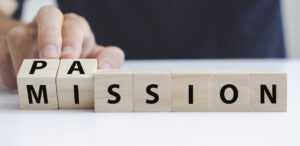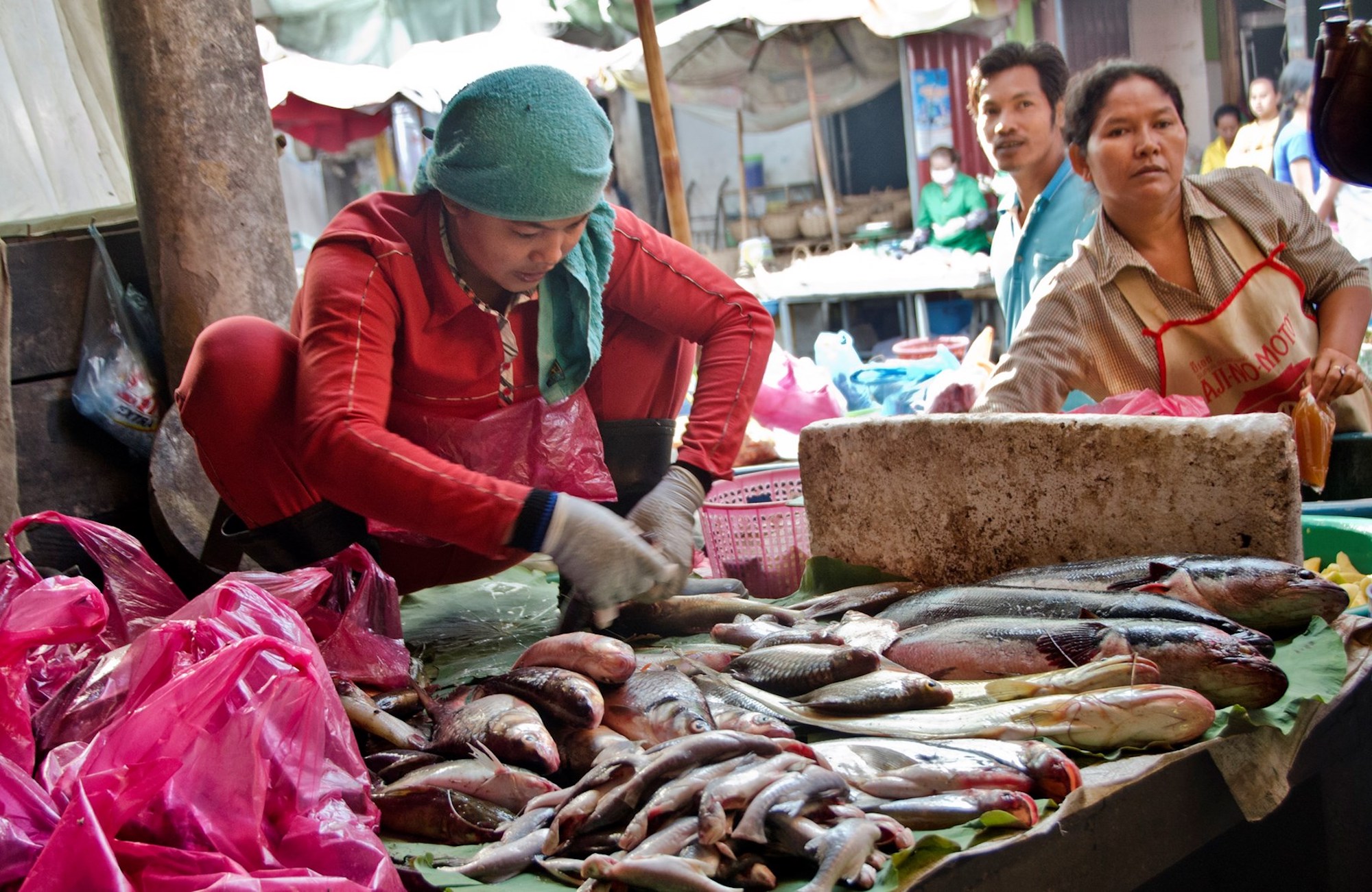
What is the purpose of an organisation?
Professor Nick Barter explores the evolution of corporate purpose, from shareholder focus to stakeholder inclusion, emphasising its strategic importance and providing guidance for modern organisations.
Entrepreneurship in the Asia-Pacific region has never been more important than now, when disruption reigns and adaptive recovery from COVID-19 dominates discussions. Despite downturns, the region hums with an entrepreneurial energy and spirit of opportunity that permeates everywhere from local marketplaces to the sprawling headquarters of multinational corporations. The region continues to demonstrate unrivalled dynamism and diversity. And, as an economic powerhouse frequently referred to as the “engine of global growth”, the Asia-Pacific increasingly acts as the lynchpin influencing the lives of citizens and states across the globe.

In 2018, the World Economic Forum predicted that, based on current trajectories, it would take 171 years for East Asia and the Pacific to attain gender equality, making them the last region in the world to achieve equality. The pandemic is pitched to set progress back even further, which has critical ramifications for women entrepreneurs. Even prior to the pandemic, Asian women made considerable gains in education that have not translated sufficiently to the opportunities offered by employment and entrepreneurship. Women remain ingrained in poverty and face lower economic opportunities. Women-owned small and medium enterprises (SMEs) are often smaller in scale, scope, and profit than those owned by men. They are often at the micro level or involved in the informal sector. In short, their opportunities are often lesser, and their impact—while profound—is often overlooked.
This has considerable ramifications for both individuals and communities. We know that gender inequality contributes to poorer development outcomes and instability across individual, community and state levels. We also know that greater gender equality on the other hand, particularly in the economy and entrepreneurship, is correlated with higher growth and lower poverty.
In all the talk around the lives and opportunities of women entrepreneurs, important gaps remain. In between successful #girlboss women pioneering their digital dreams or spearheading corporate companies, there are those who never quite make it, whose stories remain unheard and whose voices go unrecognised. For young people in particular, accessing capital and credit, challenging social or cultural limitations, and gaining the necessary skills and resources needed to grow are still issues. Bounded by vertical hierarchies and horizontal silos, women confront seemingly endless challenges in navigating entrepreneurship across a region more diverse than almost any other in the world.
Gender inequality is the most pervasive form of inequality around the world, often resulting in systemic poverty for women and girls. For example, while both men and women experience poverty, gender inequality means that women have fewer resources to cope with it. While women play a major role in agriculture and development to lift their families out of poverty, women’s contributions and success rarely alter normative beliefs and practices that entitle men to control women and family resources. Additionally, existing statutory and customary laws limit women’s access to land and other forms of property in half the countries in Asia.

Poverty, of course, is implicated in power and powerlessness, which further defines many women’s experiences—in the home, the workplace, and the state. While women represent 61 million entrepreneurs in ASEAN alone, and in some countries represent a majority of all entrepreneurs, the reality is far from being a simple gender success story writ in the shining lights of big business. Often, women’s entrepreneurship is a result of bounded choices—the need to still put food on the table, educate young ones, care for the elderly, and survive in many cases without access to social policy supports—which tend to overlook many of women’s circumstances, if they even exist at all.
How entrepreneurship, access to capital, and access to markets are characterised by women from many of these backgrounds varies widely from the discussions being held in most economic forums and business chambers of the world. In the region, women spend between 60 and 84 per cent of their time doing unpaid domestic labour—typically housework and caring duties. This has implications on their ability to create sustainable and effective enterprise, significantly drawing on their time and limiting their ability to participate in paid market work.

The other sides to these – stories of empowerment and personal triumph, of individual successes and community achievements that temper the myriad inequalities women face – still exist, however. To focus purely on the challenges limits the recognition of the female entrepreneurs who are out there and doing it anyway. It also overlooks the progress, however small, that has been made so far. In stepping into the region, walking alongside young businesswomen in Laos, Vietnam, Brunei and Cambodia, and linking them into the stories of social entrepreneurs and start-up techstars in the wider region, entrepreneurship does still matter. It matters to individuals and it matters to nations.
Given the gendered challenges we’ve discussed, as well as the Fourth Industrial Revolution, the rise of the digital economy, and a rapidly changing social, environmental and economic landscape across the Asia-Pacific region, the opportunities, as it stands, are threefold:
In many cases, whether forced to or not, women will be quickest to adapt to new circumstances—already used to doing more with less. Perhaps this is the true story of women’s entrepreneurship in the region: though they remain to have fewer resources, women truly do hold up half the sky. Therefore, for anyone with an ounce of business sense, the return on investment that women entrepreneurs offer the region is the real trillion-dollar opportunity.
 Dr Elise Stephenson is an expert in public diplomacy, national security, entrepreneurship and gender equality across Australia and the Indo-Pacific region. She is a multi award-winning researcher and Post-Doctoral Fellow at the Policy Innovation Hub and Griffith Asia Institute at Griffith University, Australia.
Dr Elise Stephenson is an expert in public diplomacy, national security, entrepreneurship and gender equality across Australia and the Indo-Pacific region. She is a multi award-winning researcher and Post-Doctoral Fellow at the Policy Innovation Hub and Griffith Asia Institute at Griffith University, Australia.
Her current research fields cover government and international relations, as well as entrepreneurship and the Asia Pacific. She is primarily interested in how Australia engages with its region and the world — whether from a diplomatic, national security, or entrepreneurial lens — as well as whom is at the forefront of that engagement — specifically looking at gender and sexuality. Elise is recognised by Google and Deloitte as one of Australia’s 50 Outstanding LGBTI+ leaders, and is Griffith University’s overall Outstanding Young Alumni Awardee of 2020.

Professor Nick Barter explores the evolution of corporate purpose, from shareholder focus to stakeholder inclusion, emphasising its strategic importance and providing guidance for modern organisations.

Celebrated author Benjamin Law has worked in the media industry for over a decade. He hates thinking of himself as a ‘diversity hire’. ‘I belong in this room,’ I told myself. I’m not a token – despite being called that so many times in my career that I’ve lost count. I’ve earned my place.

The National Rugby League’s inaugural Las Vegas Round attracted over 40,000 fans and showcased rugby league to Americans. To capitalise, the NRL should focus on awareness, celebrity involvement, American ownership, and expanding the women’s game says Griffith University’s Dr Jason Doyle.

Rental housing co-operatives offer affordable, secure homes while fostering community and tenant empowerment. Despite success elsewhere, Australia’s sector is underdeveloped, highlighting the need for policy and financial support for expansion.

The scrutiny of infrastructure planning for the Brisbane 2032 Olympics is intensifying. In alignment with the International Olympic Committee’s emphasis on sustainability and legacy, venues must prioritise plans that ensure a lasting positive impact, conforming to the standards of the ‘the new norm’.

In Australia, scams like money muling and sextortion are on the rise, with millions affected annually. Professor Andreas Chai is encouraging governments to seriously facilitate solutions including implementing identity resilience strategies, regulating online platforms, and educating students to prevent victimisation.